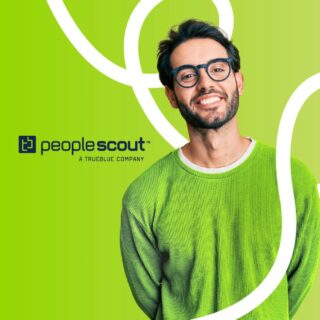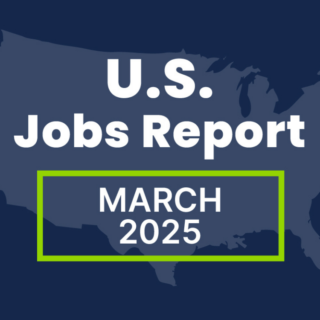PeopleScout’s10th annual client forum in APAC took place on October 16 at the beautiful Museum of Contemporary Art in Sydney. With over 120 participants, this year’s forum focussed on the changing world of work and more particularly, what HR and business leaders need to be thinking about as they transition the workforce through what is often referred to as the 4th Industrial Revolution.
Managing Director of PeopleScout in Australia and New Zealand, Nicole Cook opened the forum by introducing Taryn Owen, President of PeopleScout. Taryn shared the PeopleScout journey towards global expansion and described how PeopleScout is responding to industry trends. This was followed by a number of keynote presentations by both industry thought leaders and PeopleScout executives.
Four key themes emerged from the day:
- Australia’s changing workforce and the influence of cultural preferences
- The next disruption being a human one as the impacts of the gap in the supply and demand of quality talent put pressure on the workforce
- The increasing importance of the focus on skills over experience
- The digitisation of the talent acquisition and HR functions
Leaders also had the opportunity to participate in “Leadership Exchange” sessions where they discussed some of the more pressing topics facing HR leaders today. Our live survey of conference participants revealed what HR leaders are most worried about during this intense time of change, and maintaining the talent needed to deliver business outcomes is at the centre.
Critical questions from HR leaders in attendance included:
- How we reskill the workforce to innovate and stay relevant?
- Finding the right talent for the future and accommodating workforce needs
- The transient nature of future employment expectations resulting in difficulty retaining intellectual property and talent
- Competition for volume of resources in certain locations and sectors
- Quality of talent
- Will we respond to the changes in time?
- Skills shortage and the numbers of relevant skilled individuals being available
- Lack of skills coming through. Demands of industry work patterns versus what people want to work
- Ability of our current workforce to transition
- Keeping ahead of the pack/anticipating future needs/attracting, retaining and training new talent
- Reskilling displaced workers
- Building leaders who can deal with the future workforce and the speed of change
More insights from attendees at the forum include:
- 62 percent of participants had not been to a conference or presentation in 2017 on AI, Automation or Robotics but 94 percent of participants felt their organisations would be impacted by it
- 73 percent of participants felt their organisations were actively planning for how digitisation would impact the organisation
- 90 percent thought it was harder to find quality talent
- 61 percent felt that they would be faced with reskilling or displacing a large portion of their workforce
- 66 percent were investing heavily in graduate and entry-level programs
Our keynote presentations and networking discussions aimed to provide valuable insights that participants could take away to help develop plans to address these concerns.
Keynote: The Demographics of Business Recruitment, Procurement and Outsourcing in Australia – Bernard Salt
Bernard Salt is widely regarded as one of Australia’s leading social commentators by business, the media and the broader community. Bernard heads The Demographics Group, which provides specialist advice on demographic, consumer and social trends for business.
Bernard Salt opened by reinforcing the need for Australia to become more entrepreneurial. He illustrated how the economy has been driven by many of the same organisations like BHP Billiton and Commonwealth Bank over the past 25 or more years, pointing out the comparison to the U.S. economy being driven by monster technology organisations such as Apple, Google, Microsoft and Facebook.
He explored the rising Chinese and Indian immigration influence on the Australian economy and culture, pointing out that this increased over 50 percent in the last five years. That indicates that these cultures are looking for the lifestyle and cities that Australia has to offer.
The more than 20 years of positive GDP growth has led to a culture of aspiration within Australia, with the now growing expectation on housing with an emphasis on lifestyle products. Over the last 10 years, the shift to lifestyle focus has seen a 50 percent to 70 percent increase in expenditure on lifestyle products including cafes, takeaway foods, pharmaceutical, cosmetics and hardware
Bernard also reviewed the impact of globalisation on the workforce. While over the last 17 years there has been a reduction in some job titles (sewing machinist), the economy has added 3.4 million new jobs being added in healthcare, construction and education.
The Australian Bureau of Statistics report released on October 18 reinforced that job growth is the strongest in 12 years. This complemented Bernard’s keynote that showed the continuing shift in the labour market to services based economy, matching Australians preferences and lifestyle choices. These shifts are highlighted by the significant growth in roles such as baristas and as Bernard predicted, 25 percent more beauty therapist roles than 2011 and a 27 percent increase in fitness instructors. With the increase in the need for age and healthcare workers, Bernard validated PeopleScout’s growing position as a provider of RPO services in the healthcare sector due to this growth.
Bernard’s final recommendation to the attendees was the need to future-proof your career. These recommendations were based on continuous learning, in-house training, mentoring and the ability of the workforce to be resilient and embrace rather than fear change.
Keynote: The Digitisation of Talent Acquisition and HR – Nicole Cook
Nicole Cook, managing director for PeopleScout in Australia and New Zealand, presented on behalf of PeopleScout, giving an overview of the global talent landscape and three converging trends:
- The growing gap in the supply and demand of educated skilled talent in developed countries due to demographic shifts
- The impact of AI, automation and robotics on the workforce
- The workplace challenges of having five generations in the workforce for the first time in history.
The presentation highlighted seven critical trends facing HR and talent acquisition as a result of this talent landscape including:
- The rise of the Human Era and the relationship with our employees
- The critical shift in the focus on skills over experience
- The importance of being mobile optimised
- The total adoption of social channels in driving candidate engagement and promoting the employment brand from the bottom-up
- How AI will help find and engage critical talent in the future
- How automation will change the role of the recruiter
- And finally, the importance of understanding and using the large amounts of HR and talent data we now have at our fingertips
Nicole also presented information on PeopleScout’s proprietary technology platform, created as a response to these trends.
Panel Discussion: Digital Marketing Trends & The Employment Brand Strategy
Thought Leader Presentation: The Marriage of Data, Media and Creativity
Chris Howatson, CEO of CHE Proximity, kicked off the panel discussion by providing an overview of the changing landscape of digital marketing and how brands are engaging with consumers. He described the digital transformation occurring and reinforced that every consumer is a potential employee. Key messages included:
- Technology enables a single person view, everywhere
- The best predictor of future behaviour is past behaviour
- The expectation of ‘always on’ personalisation
- Big data systems deliver real-time artificial intelligence
- Ideas will continue to be the currency of engagement
Panel Discussion Roundup:
The panel discussion brought Chris’s presentation to life through the eyes of the employer. As talent acquisition moves from an administrative to marketing-led function, the role of digital marketing plays a greater role in attracting talent to organisations and maximising candidate engagement. Participants included Chris, Martin Cowie, People & Development Director, OMD Sydney, Elle Green, Talent Brand & Social Engagement Consultant, LinkedIn and Laura Ford, Director of Sales, Enterprise Accounts ANZ, Indeed.
The topics included how modernised marketing approaches now extend to employment marketing through the maximisation of SEO and SEM, the psychology of candidate engagement, real-time successes in our client environments and the importance of ensuring an employment brand that markets a regionalised employee value proposition.
Thought Leadership Exchange:
Attendees were given the opportunity to mix with other HR leaders and discuss critical topics of interest. The topics were selected by our clients as part of the registration process. Attendees shared their knowledge and experience of how the topic was impacting their organisation or what plans they had in place to make progress and address the change.
Leadership Exchange 1: Progress in Diversity & Inclusion
Meaghan Davis, Head of HR Australia at Lendlease, facilitated a roundtable session that focused on progress made to date in the area of diversity and inclusion. Given the high focus on this area over the past several years, the discussion focused on what has been done to date and what still needs to be done in the future.
Some of the highlights included:
- Focus is shifting to D&I across the board not just concentrating on gender. Organisations are trying to deliver an inclusive environment that promotes diversity
- Participants shared some innovative policies that are driving real change – modification of the five-day working week on building sites, flexibility policies that are not rigid and apply to all employees
- Having a male champion to act as an influencer when driving gender balance is critical to success of the initiative
- Many organisations are using testing and assessments to ensure they have a focus on the diversity of thought
- Most attendees agreed that in many roles there are not enough females entering the top of the employment funnel to drive real long-term change. All agreed that gender stereotypes need to be tackled by society early in life (at home and school) and this is a broader community initiative.
Leadership Exchange 2: Legal Impacts of Changes in the Workforce
Joydeep Hor, Founder & Managing Principle, People + Culture Strategies, facilitated very interactive sessions on the legal impacts of the changing and ever diverse working arrangements. Attendees heard about shifts in the workforce and the rise of the gig economy and contingent workforce. They discussed the risks and legal implications of these arrangements and highlighted the top issues HR leaders need to be thinking about as they lead their organisations through the shifts.
Joydeep went on to discuss the significant amount of uncertainty employers are facing when it comes to changes throughout 2018 and beyond and employment law. He led a commercially driven discussion around the importance of being educated and up to date with legal requirements to prevent possible employee issues that may arise when working with businesses that have a high demand for diversity and flexible work arrangements, and a mix of employees and independent contractors on short-term assignments.
Leadership Exchange 3: Impacts on your workforce from Industry 4.0
Austen Williams, account manager at PeopleScout, facilitated roundtable sessions on the impacts on the participant workforce from Industry 4.0 changes, or as Nicole called it early in the day, the 4th phase of the industrial revolution. Austen discussed what workforce 4.0 is and where industry is going in the next three to five years, as well as what organisations can do to prepare for it now.
He also shared where companies have room to improve and what they can do to differentiate themselves in both the local and global marketplace. Attendees also discussed the potential impact on employees as jobs are automated, the importance of giving employees retraining opportunities and the difference between “digital natives” and “digital migrants,” those that have the learning ability to be retrained and those that already have the digital skills to transition through the change. This led to a discussion around future hiring strategies, and the question of “re-hire” or “re-skill” the current workforce.
The hot topic from this exchange was around the fully automated graduate program selection process that PeopleScout had recently delivered for Siemens. The attendees were particularly interested in the how Siemens used weighted application forms, gamification and video interviewing to present a modern approach to graduate recruitment that focused on candidate engagement and attraction of the top candidates.
Leadership Exchange 4: Digital Advancements in HR & Talent Acquisition
James Henness, head of business solutions and technology for PeopleScout APAC, facilitated roundtable sessions on the digitisation of the talent acquisition as a follow-up discussion from Nicole Cook’s keynote presentation. James discussed where clients were using digital assessments such as video or gamification in their current recruitment processes.
He also discussed the use of AI technology embedded within video assessment and what that meant regarding recognising bias and encouraging diversity. Attendees were very interested in the use of chatbots within the recruitment process with most attendees confirming they had seen chatbots in other industries but never used within the recruitment process.
It was a great day of networking, insights and leadership exchanges. Thank you again to our clients, valued guests, keynote speakers and roundtable hosts who made this year’s event so rewarding.


